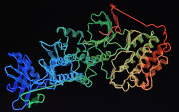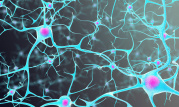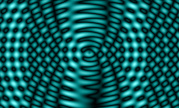Presentation
Motivations
Nowadays, in order to make innovations in an advanced scientific and technological context







 (like e.g. system biology, neuroscience, computation, network engineering, web economy, financial markets modeling, novel materials), it is mandatory to master the most advanced concepts and methodologies for complex systems. This is why we have set up a Master of Science program, with two parallel educational tracks, which aims to offer the best techniques needed to attack interdisciplinary problems.
(like e.g. system biology, neuroscience, computation, network engineering, web economy, financial markets modeling, novel materials), it is mandatory to master the most advanced concepts and methodologies for complex systems. This is why we have set up a Master of Science program, with two parallel educational tracks, which aims to offer the best techniques needed to attack interdisciplinary problems.
Topics
The Master of Science programme is concerned with the study of four discipline areas:
Statistical physics and stochastic processes: you will develop a solid background on advanced topics of statistical physics related to phase transitions, heterogeneous and disordered systems, statistical field theory, stochastic processes and out-of-equilibrium systems.
Quantum physics: you will learn the advanced tools of quantum physics to address the study of quantum systems characterized by a large number of correlated degrees of freedom, interaction effects, quantum phase transitions, out-of-equilibrium quantum dynamics
Algorithms, numerical and simulation methods: you will be trained on the concepts of computational complexity, on the main numerical and simulation methods used in modern physics and on the main algorithms for the solution of complex problems of statistical inference and combinatorial optimization, allowing you to understand the relationships between these methodologies.
Biological systems: you will learn to model and analyze complex problems in the field of biology, developing the necessary language and knowledge in the fields of neuroscience, molecular and cellular biophysics and bioinformatics, through physical-statistical and computational methodologies.
You will take part in face-to-face lectures, classroom practicals, computational laboratory activities organized in groups of students.
The programme is organized in two parallel tracks that share the same goals and structure, but differ in terms of location. In both tracks, it is possible to attend the entire Master Programme in English.
Goals
Graduates from this master program will be experts in modeling and simulation of complex systems. They can look forward to careers as researchers in development labs or computing centers, senior software engineers, biological physicists, financial analysts and more. Thanks to their strong methodological skills, they will also profit of new career opportunities offered by the most advanced companies and research institutes operating in multidisciplinary contexts.
Graduates can access PhD programs in physics and related subjects, in particular those encountered during the master program (for instance information engineering, or biology at the cellular and molecular level, especially computational biology and bioinformatics). Finally, graduates from both the International and National track can obtain a master degree in 'Nanotechnologies for ICTs' at Politecnico di Torino through a small amount of integrative exams ![]() (13.33 kB).
(13.33 kB).
